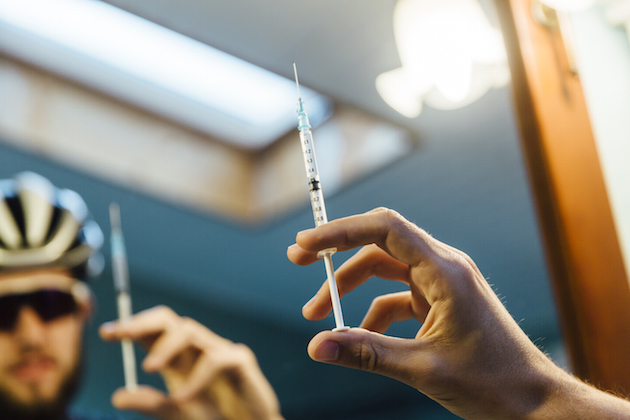Athletes should be implanted with microchips in order to catch drug cheats, says Olympians' chief
We microchip dogs, so why shouldn't we microchip athletes, says World Olympians Association chief

Professional athletes should be fitted with microchips in an attempt to catch dopers, according to the head of an organisation representing Olympic athletes.
Mike Miller, chief executive of the World Olympians Organisation, said that anti-doping authorities needed to be prepared to implement radical new methods of drug detection if they are going to ensure clean sport.
Speaking at a Westminster Media Forum on Tuesday, Miller said that technological developments meant that microchips implanted in athletes' bodies would soon be able detect the use of banned substances.
>>> American amateur rider tests positive for seven banned drugs in single doping test
"The problem with the current anti-doping system is that all it says is that at a precise moment in time there are no banned substances," Miller said.
"We need a system which says you are illegal substance free at all times, and if there are marked changes in markers, they will be detected.
"Some people say we shouldn’t do this to people. Well, we’re a nation of dog lovers; we chip our dogs. We’re prepared to do that and it doesn’t seem to harm them. So, why aren’t we prepared to chip ourselves?"
The latest race content, interviews, features, reviews and expert buying guides, direct to your inbox!
>>> Dr Hutch: The absurdity of doping excuses
However Nicole Sapstead, chief executive of UK Anti-Doping, was sceptical of Miller's suggestion when she spoke at the same event, saying that there needed to be assurances that the microchips could not be tempted, and raising concerns about whether the technology could be an invasion of athletes' privacy.
"We welcome verified developments in technology which could assist the fight against doping," Sapstead said.
"However, can we ever be sure that this type of thing could never be tampered with or even accurately monitor all substances and methods on the prohibited list?
"There is a balance to be struck between a right to privacy versus demonstrating that you are clean. We would actively encourage more research in whether there are technologies in development that can assist anti-doping organisations in their endeavours."
Henry Robertshaw began his time at Cycling Weekly working with the tech team, writing reviews, buying guides and appearing in videos advising on how to dress for the seasons. He later moved over to the news team, where his work focused on the professional peloton as well as legislation and provision for cycling. He's since moved his career in a new direction, with a role at the Department for Environment, Food and Rural Affairs.